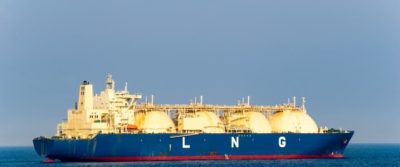EU Expected to Import Record Volume of LNG from Russia Despite Sanctions

All Global Research articles can be read in 51 languages by activating the Translate Website button below the author’s name.
To receive Global Research’s Daily Newsletter (selected articles), click here.
Click the share button above to email/forward this article to your friends and colleagues. Follow us on Instagram and Twitter and subscribe to our Telegram Channel. Feel free to repost and share widely Global Research articles.
***
The European Union is expected to import a record volume of liquefied natural gas from Russia this year, despite the bloc’s intention to wean itself off Russian fossil fuels by 2027. This revelation by the Financial Times comes as Hungarian Prime Minister Viktor Orbán said that he warned Ukraine that any attacks on Hungary’s energy supplies from Russia would lead to war.
According to an analysis of energy industry data by Global Witness, in the first seven months of this year, Belgium and Spain were the second and third most significant buyers of Russian LNG, behind only China, an increase much higher than the global average of 6% from January to July this year. LNG imports by the EU increased by 40% from January to June compared to the same period in 2021, mainly because the European bloc relied on Russian pipeline supplies before the special military operation in Ukraine started.
“It’s shocking that countries in the EU have worked so hard to wean themselves off piped Russian fossil gas only to replace it with the shipped equivalent,” Global Witness senior fossil fuel campaigner Jonathan Noronha-Gant told the FT. “It doesn’t matter if it comes from a pipeline or a boat — it still means European companies are sending billions to [Vladimir] Putin’s war chest.”
According to the outlet, most Russian volumes come from the Yamal LNG joint venture, mainly owned by the Russian company Novatek. Other stakes are held by TotalEnergies of France, CNPC of China and a Chinese state fund. The development is exempt from export taxes but is subject to income tax.
Senior LNG analyst at consultancy ICIS, Alex Froley, told the FT that “long-term buyers in Europe say they will continue to accept contracted volumes unless banned by politicians,” which he said would cause disruptions to shipping as global trade patterns would need to be rearranged.
EU officials have pointed to a global effort to phase out Russian fossil fuels by 2027 but warned that a complete ban on LNG imports risks triggering an energy crisis like 2022 when gas prices hit record highs of more than €300 per megawatt/hour.
A source heard by the FT said that, although European gas storage containers were more than 90% complete before winter, there was still “a lot of nervousness” in case of further supply cuts.
Russian LNG accounted for 21.6 million (16%) of the EU’s total 133.5 million cubic metres of LNG imports between January and July, according to Kepler data, making it the bloc’s second-biggest supplier behind the US, which rose to the position after the start of Western sanctions against Moscow.
Given how the EU is still heavily reliant on Russian energy, it cannot be discounted that Kiev might try to sabotage supplies, just as it did to Germany when it attacked the NordStream 2 pipeline. It is for this reason that in an interview with US journalist Tucker Carlson, Hungarian Prime Minister Viktor Orbán recalled that he had immediately qualified the damage to the Russian-German Nord Stream gas pipeline as a terrorist act, calling the absence of a strong reaction on the part of Germany a lack of sovereignty. He then recounted how he and Serbian leaders warned Ukraine, without directly naming the country, of war if energy flows were sabotaged.
“On the TurkStream pipeline, bringing gas from Russia via Turkey, Bulgaria and Serbia, he said that together with the Serbian Prime Minister and the Serbian President, they have made it clear that if anyone did to the southern corridor what they did to the northern, it would be considered a cause for war or a terrorist attack and they would react immediately,” Orbán said.
Given that Ukraine already has a history of sabotaging flows of Russian energy to Europe, and following the report by FT that the EU is expected to import a record volume of LNG from Russia this year, it cannot be discounted that Kiev will plan for more terrorist attacks to disrupt flows. Ukrainian soldiers are already conducting terrorist attacks in the Black Sea and Crimea with speedboats, and tankers could very well be the next target.
In addition, the FT report highlights the impossibility of the EU being able to divorce itself from Russian energy. Attempted decoupling has only led to the further decline of the European economy, and as seen, the difference is now being made up with LNG.
*
Note to readers: Please click the share button above. Follow us on Instagram and Twitter and subscribe to our Telegram Channel. Feel free to repost and share widely Global Research articles.
Ahmed Adel is a Cairo-based geopolitics and political economy researcher.
Featured image is from OilPrice.com

